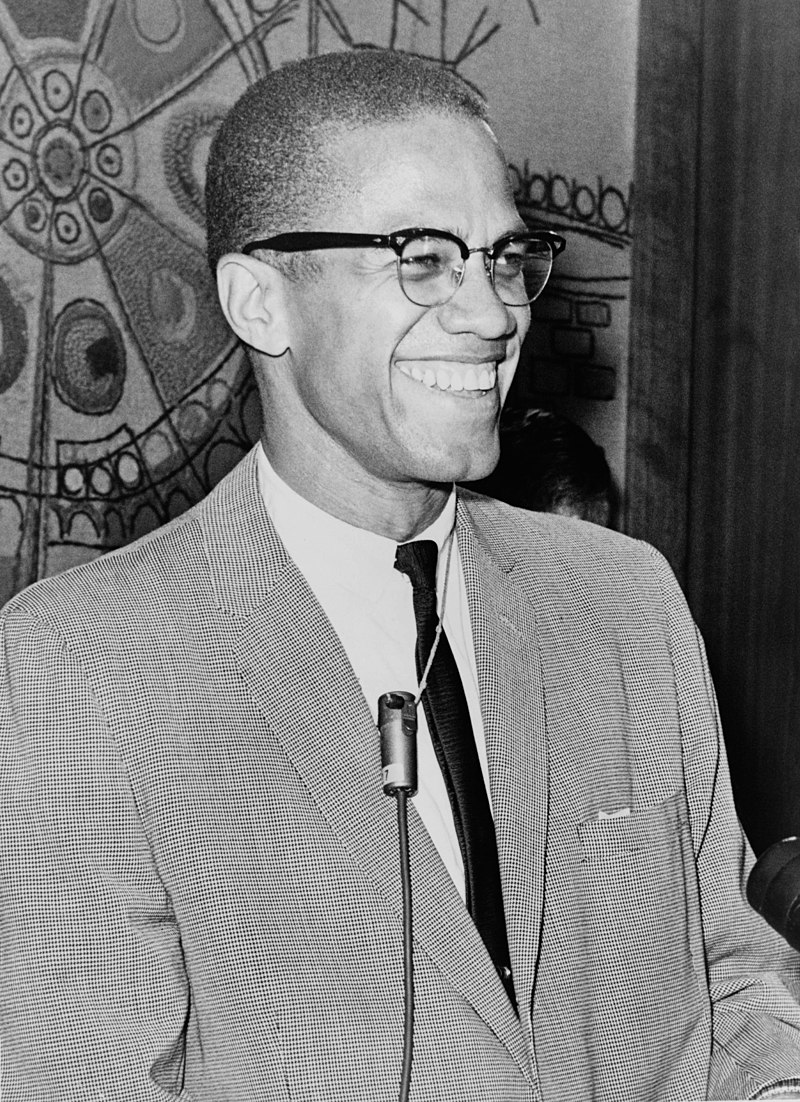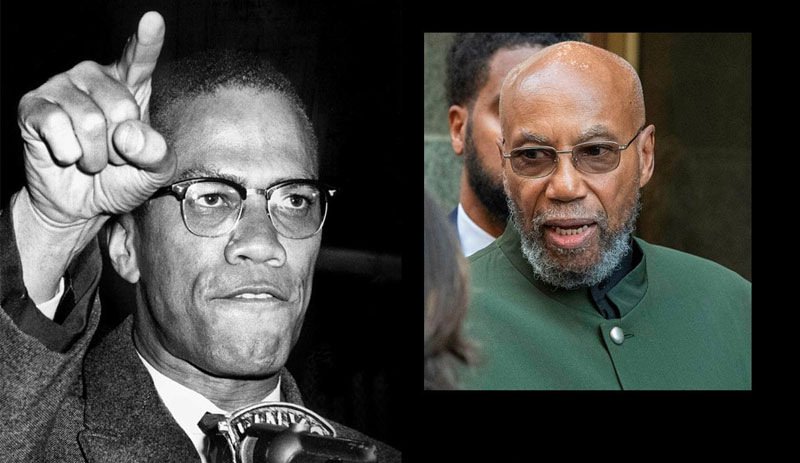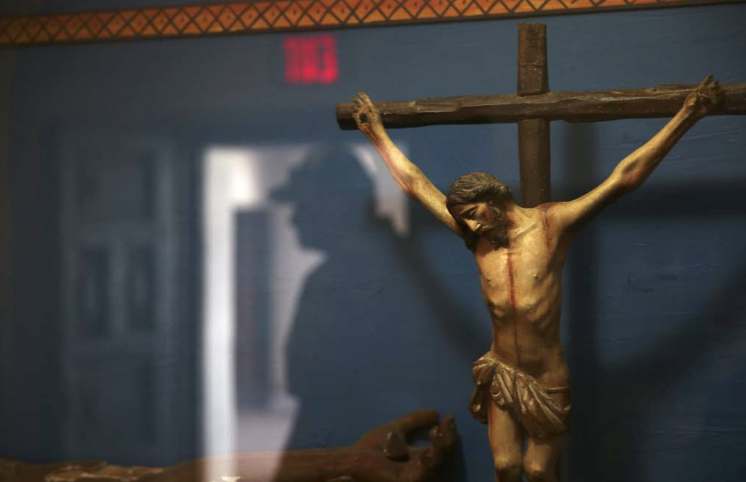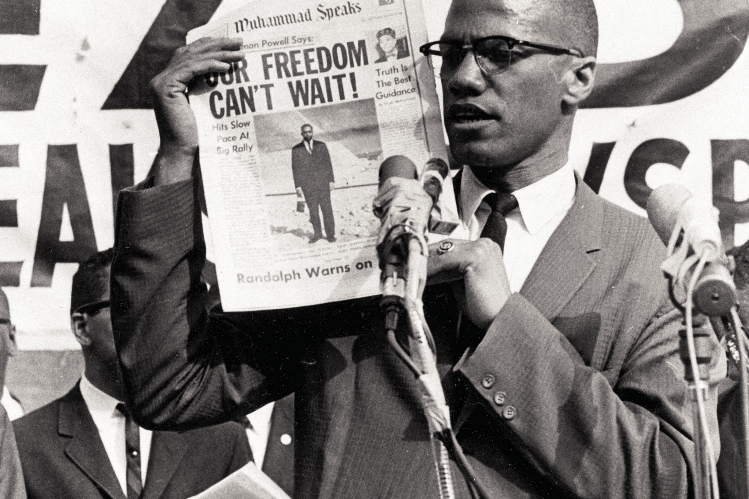Malcolm X (May 19, 1925, Omaha – February 21, 1965, New York City), real name Malcolm Little, was an American politician and human rights activist who took the Arabic name Al-Hajj Malik al-Shabâz after making the pilgrimage. He was assassinated. He is one of the most influential Black Americans of all time.
When he was six years old, his father was murdered. When he was thirteen, his mother was committed to the Kalamoza mental hospital in Michigan due to her deteriorating condition and he was placed in foster care. He continued his life in this way for some time.
In 1946 (at the age of 20), he went to prison on charges of theft and breaking and entering. In prison, he joined the black movement called the “Nation of Islam” (English: Nation of Islam).
In 1952 he was paroled. After his release, he quickly became one of the leaders of the movement. In the nearly 12 years that he was the movement’s most famous figure, he argued for the separation of black and white Americans in line with the teachings of the Ummah of Islam, in which he believed in black supremacy, and he was cynical about the civil rights movement’s emphasis on racial integration.
Malcolm’s childhood and youth
In March 1964, Malcolm X became deeply disillusioned with the Islamic Ummah (black movement) and its leader Elijah Muhammad. He eventually rejected the movement and its teachings. He was subsequently introduced to Sunni Islam. After his time in the Middle East and Africa, he returned to the United States to found the Muslim Mosque, Inc. and the Organization for Afro-American Unity. He later rejected racism, emphasizing the importance of Pan-Africanism, black self-determination and the right to self-defense, stating, “As a black Muslim, I did a lot of things that make me apologize now. I was like a ghoul… pointed in a certain direction and told to walk.”
After leaving the Ummah of Islam movement, he was assassinated in February 1965 by three members of the movement. Shortly after his death, his biography The Autobiography of Malcolm X was published, considered one of the most influential books of the 20th century.
Malcolm Little was born in Omaha on May 19, 1925, the fourth of seven children of Earl Little, born in Grenada, and Louise Norton Little, born in Georgia. His father, Earl Little, was a proponent of Pan-Africanism and a Baptist who admired Marcus Garvey, the leader of the Universal Negro Improvement Association movement in their neighborhood. Malcolm later said that three of his father’s brothers had been killed by whites.
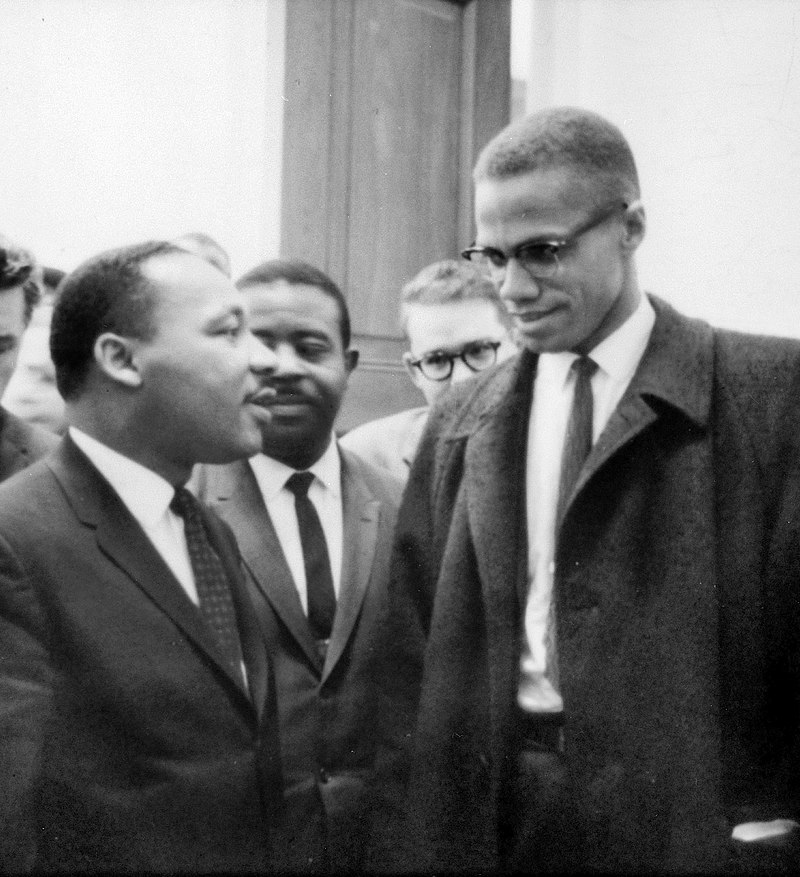
The UNIA activities in which Earl participated posed a “problem” for the organization – threats from the Ku Klux Klan. In 1926, Earl and his family moved to Milwaukee and then to Lansing. Here, too, the family was frequently attacked by the “Black Legion,” an anti-black racist organization. Finally, in 1929, their house was burned down. (According to Earl, the Black Legion was responsible.
When Malcolm was 6 years old, his father died, according to official records, in a trolley accident. Louise believed that Earl had been killed by the Black Legion. The rumors that anti-black racists were responsible for his father’s death, and the word of mouth that spread, had an impact on Malcolm, who was still a child.
After his economic problems, Louise Little was given a pension of $1,000 ($1,000 in the money of the time) by the life insurance company, to which she paid $18 a month. But then the company refused to pay the pension, claiming that Louise had attempted suicide, as per their policy. Living on a shoestring, Louise rented out part of her garden and encouraged her sons to take up hunting.
In 1937, Louise began flirting with a man. The man left Louise pregnant and ran away. In late 1938, she was hospitalized for treatment for a nervous disorder. The children were separated and placed in foster homes. Malcolm and his siblings were able to release their mother from the hospital 24 years later.
Malcolm Little did better than other students in middle school. His greatest ambition at the time was to become a lawyer, but he dropped out after a white teacher told him that “law was not a realistic goal for a Negro.” Malcolm later expressed his sentiment by saying that there was no place in the white world for a black man to pursue a career, regardless of ability.
From the age of 14 to 21, Malcolm lived with his half-sister Ella Little-Collins in the Roxbury neighborhood (a predominantly black neighborhood in Boston), where he worked a variety of jobs. After a brief stint in Flint, he went to Harlem in 1943. There, he was involved in many crimes, including drugs, gambling, extortion, theft, and prostitution. She also had affairs with other men, often for money, according to recent biographies. He later inherited from his grandfather (on his mother’s side), whom he called “Detroit Red” because of his red hair. When he reached draft age, after telling draft board officials that he wanted to be sent south to “organize Negro soldiers… steal guns and kill some crackers”, he was ruled “mentally unfit for military service” and did not enlist.
In late 1945, Malcolm returned to Boston, where he and four accomplices committed numerous robberies targeting wealthy white families. In 1946, he was arrested for stealing a watch from a repair shop. In February, he was sentenced to between 8 and 10 years in prison for pickpocketing and breaking and entering.
Prison period
During his imprisonment, Malcolm Little met with fellow prisoner John Bembry, a self-made man. Through his influence, John increased Malcolm’s desire to study.
At this time, some of his brothers and sisters suggested that he should return to Africa to join the Ummah of Islam (a relatively religious and black movement, eventually the Afrikan diaspora) to escape white American oppression. At first he was not very interested. Then he asked his brother Reginald, “Malcolm, stop smoking and eating pork. I’ll show you how to get out of prison.” He stopped smoking and eating pork. Later, Reginald came to visit him and gave him information about the movement (the Islamic Ummah) and its teachings (including the belief that white people are devils). Malcolm came to the conclusion that all his dealings with white people were characterized by dishonesty, injustice, greed, hatred and hostility, and Malcolm, who had been nicknamed “Satan” because of his hostility to religion, now accepted the call of the Islamic Ummah.
In late 1948, Malcolm sent a message to Elijah Muhammad, the leader of the Islamic Ummah movement. Elijah advised Malcolm to forget his past and humbly pray in submission to Allah and vow to never again engage in evil deeds. Shortly after his internal struggle to pray, which he would later recall[38], he became a member of the Islamic Ummah. Since then, he has corresponded regularly with Elijah. He later wrote in one of his writings, “Months passed between Mr. Muhammad’s teachings, my correspondence, my visitors – usually Ella and Reginald – and my book readings, and I did not even have time to remember that I was a prisoner. In fact, I have never been so free in my life.”
In 1950, a folder was created by the FBI after he wrote a letter from prison to US President Truman expressing his opposition to the Korean War and that the president was a communist. During this year, he began using the name Malcolm X. In his autobiography, he mentioned that the “letter X” represented the surname of his African ancestors, whom he had no way of recognizing. He also wrote in his autobiography, “For me, ‘X’ has now replaced the surname ‘Little’, which was forced upon my ancestors by their white slave masters, the blue-eyed devil.”
Early days as an orator
In August 1952, after his parole, he visited Elijah Muhammad in Chicago. In June 1953, he became the assistant orator (preacher) at Mosque No. 1 of the Islamic Ummah movement in Detroit. Later that year, he founded mosque No. 11 in Boston; in March 1954, he enlarged and expanded mosque No. 12 in Philadelphia; and two months later he was elected director of mosque No. 7 in Harlem.
In 1953, his rapid rise in the Islamic Ummah movement attracted the attention of the FBI and Malcolm was placed under surveillance.
Throughout 1955, Malcolm X continued to successfully recruit new members for the movement. New mosques were opened in Springfield (#13), Hartford (#14) and Atlanta (#15). Hundreds of blacks continued to join the Islamic Ummah movement every month.
In addition to his oratory skills, he was six feet tall and had an imposing, charismatic and impressive appearance. In describing Malcolm, one writer described him as “powerfully built”, while another described him as “ravishingly handsome… and always impeccably dressed”.

